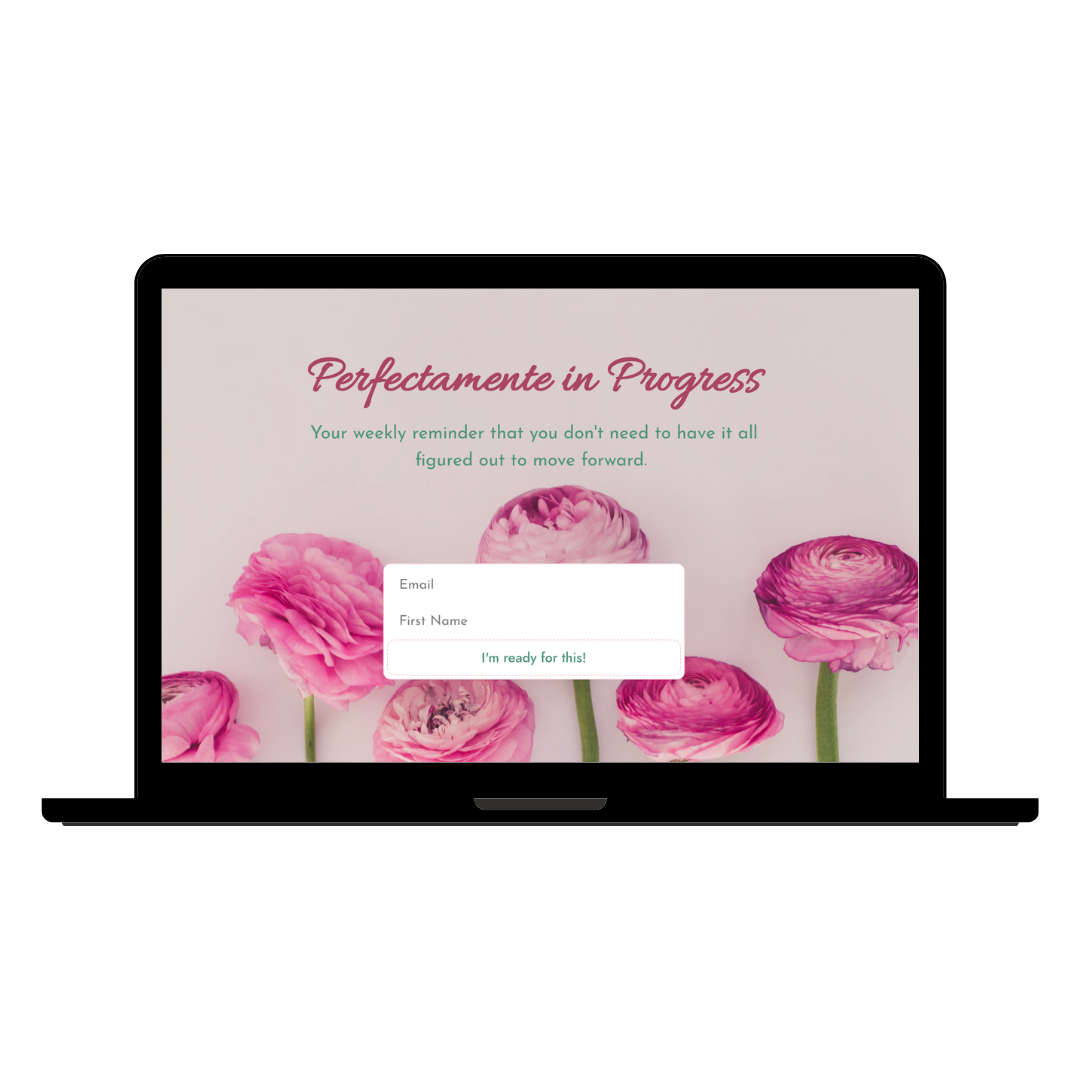The Illusion of Powerlessness (And Why It’s More Common Than You Think)
Have you ever woken up feeling like a passenger in your own life? Like no matter what you do, another curveball is heading your way, and you’re just trying to duck instead of swing back?
If you’re nodding along, you’re not alone. The feeling that life is happening to you rather than with you is incredibly common, especially for first-generation professionals and women of color navigating spaces where we’re often underrepresented. When we’re constantly adapting to meet expectations—whether cultural, professional, or societal—it’s easy to lose sight of our own power to choose.
But here’s what I’ve learned after years of helping ambitious professionals navigate overwhelming periods: feeling out of control doesn’t mean you actually are out of control. Often, it just means you’ve temporarily forgotten where your power lies.
In this comprehensive guide, you’ll discover exactly how to feel in control when life is overwhelming, including five practical strategies you can implement today to reclaim your personal agency and stop feeling like everything is just happening to you.
Why We Lose Our Sense of Control (It’s Not Your Fault)
Before we dive into solutions, let’s acknowledge something important: losing your sense of agency during overwhelming times isn’t a character flaw or a sign of weakness. It’s a completely natural response to stress and uncertainty.
The Psychology Behind Feeling Powerless
When we’re overwhelmed, our brains go into survival mode. This ancient wiring served our ancestors well when facing immediate physical threats, but it’s less helpful when dealing with modern stressors like workplace pressure, family expectations, or major life transitions.
During these times, we often experience what psychologists call “learned helplessness”—the belief that our actions don’t matter because outcomes seem random or beyond our influence. This mindset can be particularly challenging for first-generation professionals who may feel pressure to follow predetermined paths or women of color who’ve learned that going with the flow is sometimes safer than making waves.
The “Path of Least Resistance” Trap
For many of us, especially those from marginalized communities, we’ve been taught that adaptation and accommodation are survival strategies. And they are—but they can also become habitual responses that leave us feeling like we’re just reacting to life instead of actively participating in it.
The challenge is recognizing when this adaptive strategy is serving you versus when it’s keeping you stuck in a cycle of feeling powerless.
5 Evidence-Based Strategies to Feel in Control When Life is Overwhelming
1. Master the Art of the Brain Dump
The Strategy: When everything feels chaotic, get it all out of your head and onto paper (or a digital document). This isn’t just about making a to-do list—it’s about creating clarity so you can see what you actually have influence over.
How to Do It:
- Set aside 15-20 minutes when you won’t be interrupted
- Write down everything that’s weighing on you: work stress, family concerns, financial worries, health issues—literally everything
- Don’t edit or organize as you write; just let it all flow
- After you’ve dumped everything, go back through your list with two different colored pens
- Circle or highlight in one color: things you have direct control over
- Use the other color for: things that are completely outside your control
Why It Works: This process helps you distinguish between what belongs in your sphere of influence and what doesn’t. You might be surprised to discover that even when life feels chaotic, there are more things within your control than you initially realized.
Real-World Application: Maybe you can’t control whether your company announces layoffs, but you can control how you prepare your resume, who you reach out to in your network, and how you manage your stress during uncertain times.
2. Focus on Response, Not Circumstance
The Strategy: Shift your attention from trying to control what happens to you to controlling how you respond to what happens. This is where your true power lies.
The Mindset Shift: Instead of thinking: “Why does this always happen to me?” Try thinking: “Given that this is happening, what’s my best next move?”
Practical Applications:
- When faced with unexpected criticism at work, you can’t control the feedback, but you can choose whether to get defensive or ask clarifying questions
- When family members pressure you about your life choices, you can’t change their opinions, but you can decide how much weight to give their input
- When dealing with a health scare, you can’t control the diagnosis, but you can choose to be proactive about treatment and self-care
Why This Matters for Our Community: As first-generation professionals or women of color, we often face unique challenges and microaggressions. While we can’t control others’ biases or systemic barriers, we can control our responses—whether that’s speaking up, seeking allies, or strategically choosing our battles.
3. Zoom Into the Present Moment
The Strategy: When the future feels uncertain and the past feels heavy, bring your focus back to the here and now. Present-moment awareness helps you recognize the choices available to you right now, today.
How to Practice Present-Moment Agency:
- Start each morning by asking: “What’s one choice I can make today that aligns with my values?”
- Before making decisions, pause and ask: “What does my gut tell me about this situation?”
- When anxiety about the future creeps in, redirect your attention: “What needs my attention in the next hour?”
- Practice the 5-4-3-2-1 grounding technique: Notice 5 things you can see, 4 you can touch, 3 you can hear, 2 you can smell, 1 you can taste
Why Present-Moment Focus Matters: Future uncertainty can feel paralyzing, but present-moment choices feel manageable. Maybe you can’t plan your entire career trajectory right now, but you can choose to have that difficult conversation with your manager, or you can decide to update your LinkedIn profile this afternoon.
4. Start Small and Build Your Choice Muscle
The Strategy: Agency isn’t built overnight—it’s developed through consistent practice of making choices, even tiny ones. Think of it like building physical strength: you start with lighter weights and gradually increase resistance.
Micro-Choices That Build Agency:
- Choose what you eat for breakfast instead of defaulting to whatever’s quickest
- Decide to take a different route to work, even if it’s not the most efficient
- Pick one social commitment to say no to this week
- Choose to call a friend instead of scrolling social media
- Decide to go to bed 15 minutes earlier than usual
The Compound Effect: These small choices might seem insignificant, but they’re actually training your brain to recognize that you do have options. Each small choice reinforces your sense of agency and builds confidence for bigger decisions.
Cultural Context: This is especially powerful for those of us who’ve been taught to prioritize others’ comfort over our own choices. Starting small helps you practice honoring your preferences without the high stakes of major life decisions.
5. Separate Your Sphere of Influence from Global Concerns
The Strategy: Learn to distinguish between what’s yours to handle and what belongs to the larger world. You can care deeply about global issues without taking personal responsibility for solving them all.
Creating Healthy Boundaries:
- Personal Sphere: Your health, your relationships, your career decisions, your daily habits, your responses to situations
- Extended Sphere: Your family dynamics, your workplace culture, your local community involvement
- Global Sphere: Political outcomes, economic trends, natural disasters, social media discourse
Practical Application:
- You can vote and stay informed about politics without scrolling news feeds for hours daily
- You can support causes you believe in without feeling guilty for not doing more
- You can empathize with others’ struggles without absorbing their stress as your own
Why This Matters: When we try to carry the weight of everything happening in the world, we become paralyzed and feel powerless. Focusing your energy on your sphere of influence actually allows you to make a bigger positive impact.
Red Flags: When You’re Stuck in “Life is Happening TO Me” Mode
Recognizing when you’ve slipped into powerlessness mode is the first step to changing it. Watch for these warning signs:
- Decision Paralysis: You avoid making choices because you assume they won’t matter anyway
- Victim Language: Your internal dialogue frequently includes phrases like “I have no choice” or “I can’t help it”
- Reactive Living: You’re constantly responding to crises instead of proactively making choices
- Comparison Spiral: You assume everyone else has it figured out while you’re just trying to survive
- Energy Depletion: You feel exhausted not from doing too much, but from feeling like nothing you do matters
Green Flags: Signs You’re Reclaiming Your Agency
As you practice these strategies, celebrate these positive indicators:
- Proactive Planning: You’re making choices based on your values, not just reacting to circumstances
- Boundary Setting: You’re saying no to things that don’t serve you, even when it’s uncomfortable
- Solution-Focused Thinking: When problems arise, your first thought is “What can I do about this?” rather than “Why me?”
- Self-Advocacy: You’re speaking up for your needs at work, in relationships, and with family
- Present-Moment Awareness: You feel grounded in the here and now instead of constantly anxious about the future
The Cultural Component: Navigating Agency in Professional Spaces
For first-generation professionals and women of color, reclaiming agency can feel particularly complex. We’re often navigating unwritten rules while managing expectations from multiple communities.
Common Challenges:
- Imposter Syndrome: Feeling like you don’t belong in professional spaces can make it harder to advocate for yourself
- Cultural Expectations: Family or community pressure to follow certain paths can conflict with your personal goals
- Workplace Dynamics: Being one of few in your demographic can create pressure to go along to get along
Strategies for Cultural Navigation:
- Honor Both/And: You don’t have to choose between professional success and cultural authenticity
- Find Your Allies: Seek out mentors and colleagues who understand your unique perspective
- Practice Strategic Authenticity: You can be genuine while also being strategic about when and how you share aspects of your identity
- Redefine Success: Create your own definition of achievement that honors both your ambitions and your values
When Overwhelm Becomes Unmanageable: Knowing When to Seek Support
While these strategies are powerful, it’s important to recognize when overwhelm has crossed the line into something that requires professional support. Consider reaching out to a therapist, counselor, or coach if:
- You’re experiencing persistent sleep disruption or changes in appetite
- You feel hopeless about the future for more than a few days at a time
- You’re isolating yourself from friends and family
- You’re using substances to cope with stress
- You’re having thoughts of self-harm
Remember: Seeking help isn’t a sign of weakness—it’s an act of agency. You’re choosing to get the support you need to feel better.
Your Next Steps: From Overwhelm to Empowerment
Feeling in control when life is overwhelming isn’t about having all the answers or never experiencing stress. It’s about remembering that even in chaos, you have choices. Even when you can’t control outcomes, you can control your responses. Even when the path forward isn’t clear, you can choose your next step.
Start with one strategy from this guide—maybe it’s doing a brain dump this evening or choosing to take a different route to work tomorrow. Small actions build into significant changes, and every choice you make reinforces your sense of agency.
The goal isn’t perfection; it’s progress. And progress, even when it’s messy and imperfect, is always within your control.
Subscribe to the Newsletter








